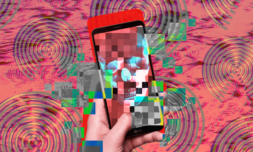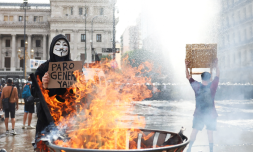As we encounter countless images and news of people in distress, navigating our emotions is becoming increasingly difficult.
Remember those stories we heard as kids that made the world seem like nothing but sunshine and happiness?
Growing up, we all come to realize that life isn’t a fairy tale. Still, most of us never imagined the extent of agony we’d encounter.
With just a click, we gained access to almost every corner of the world, and along with it, a darker side we hadn’t anticipated.
Now, even answering a simple question like, ‘How are you?’ feels complicated as we’re bombarded daily with images of war, violence, poverty, and, unfortunately, much more.
Can we claim to be genuinely content or happy when so much horror is happening? On the other hand, wouldn’t it be selfish to say we don’t feel okay while others are actually suffering?
If you’ve been finding it hard to navigate your emotions, you might be experiencing vicarious trauma — a phenomenon many of us are going through in modern life.
What is vicarious trauma?
According to Dhruti Shah’s interview with Laurie Anne Pearlman for The Guardian, Pearlman observes a shift in worldview among therapists due to their cumulative exposure to clients’ stories.
In response to this awareness, clinical psychologists Lisa McCann and Laurie Anne Pearlman coined the term ‘vicarious trauma’ in 1990.
This concept essentially refers to a shift in emotions and thoughts resulting from repeated exposure to distressing situations or information.
At that time, it was used exclusively for therapists working closely with trauma survivors.
Over time, it has expanded to include journalists, legal professionals, social workers, and eventually all of us – likely because technology now allows us to connect directly and hear incidents firsthand, without the filter of a third party.
Dr. Pam Resden noted at the 2015 Annual Conference of the British Psychological Society that social media shares unedited, horrific details as they are.
In doing so, people are more likely to be affected by the events, as they are not protected by the ‘warning’ symbols or edits typical of traditional media.
Comment
byu/IthadtobethisWAAGH from discussion
inCuratedTumblr




















